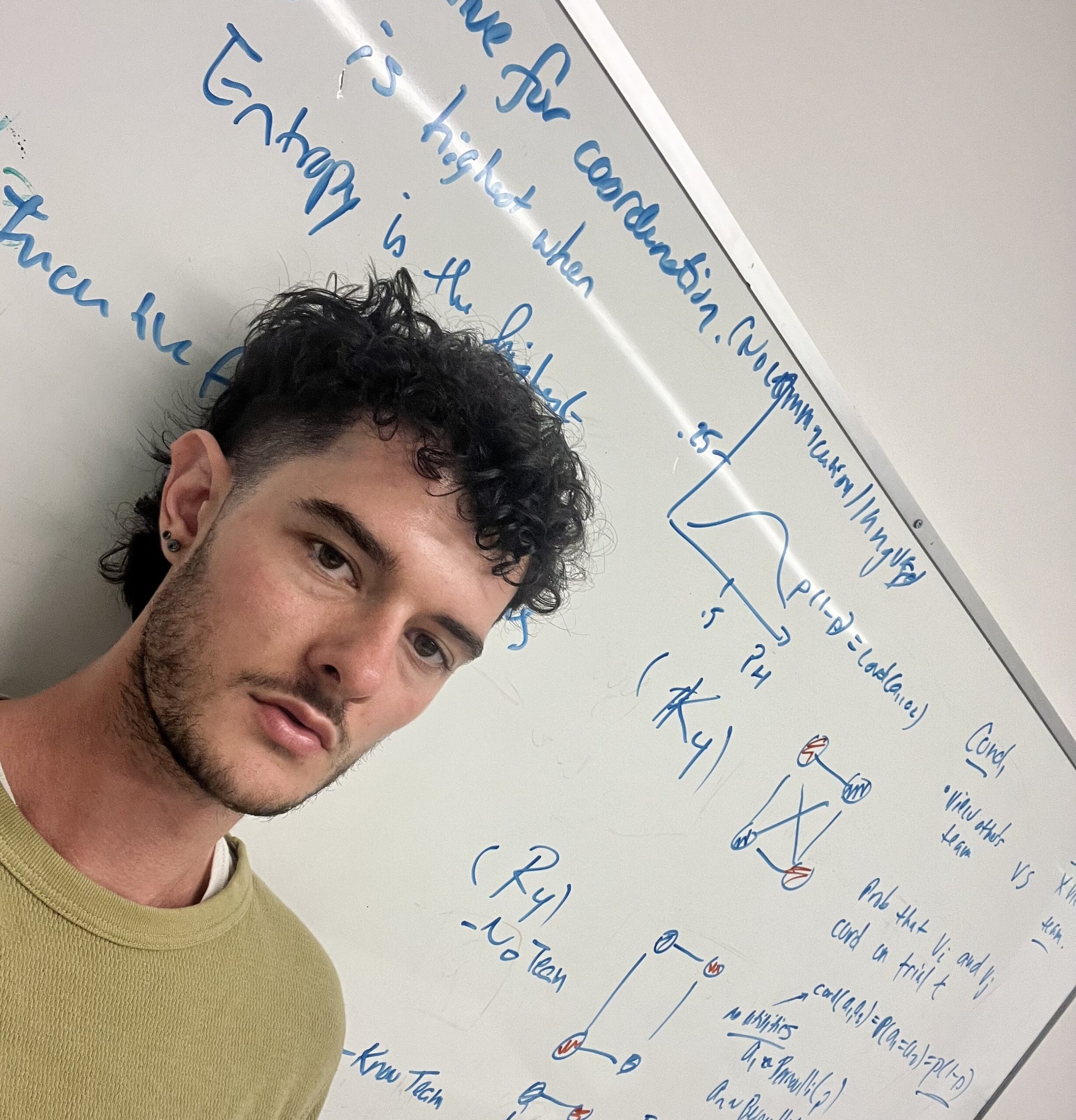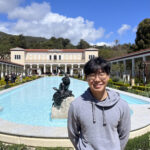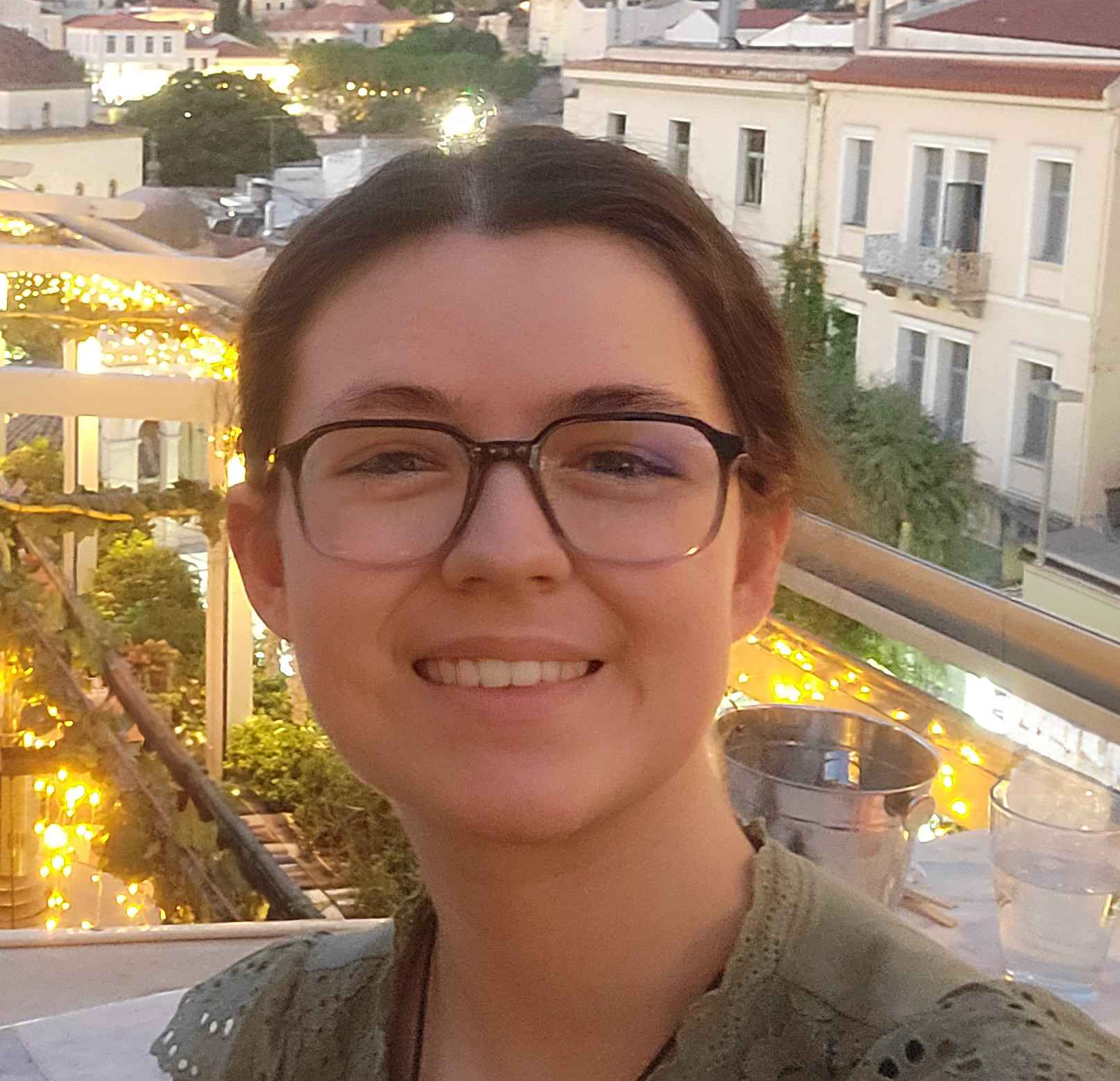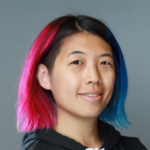Faculty

Hongjing Lu
hongjing@ucla.edu
Professor, Departments of Psychology & Statistics
The University of California, Los Angeles
7534 Pritzker Hall, Office phone #: 310-206-2587
Hongjing Lu’s CV
Postdoc Researchers

My research focuses on how to facilitate shared understanding in online social networks. I run large-scale social network experiments, develop mathematical models of networked behavior, and custom-build AI tools for computationally modeling narrative communication and group decision-making. My cognitive science research supports a broader goal of improving narrative agency and collective problem solving on the internet and in the physical world. Personal webpage
Graduate Students

Bryce Linford (Ph.D. student, Psychology)
I study decision making and reasoning using experimental and computational approaches. My current focus is on how people’s social networks influence their attitudes and decisions, and specifically how people sample information from their social networks through a process termed social sampling. I also study how the structure of social networks affects the emergence of consensus and shared narratives. Personal webpage

Yiling Yun (Ph.D. student, Psychology)
I received my B.S. in Statistics and Cognitive Science with a Specialization in Computing at UCLA (a double Bruin :)). My previous work focused on cooperative communication and causal perception. I am particularly interesting in how we can easily reason about other people’s minds and about the physical world, sometimes even unconsciously. My general research interests focus on using computational methods to study social perception and cognition. I am also interested in exploring other topics under cognition such as memory, emotions, and creativity.

Andrew Lee (Ph.D. student, Psychology)
I attended Williams College for my B.A. and Oxford University for a year abroad, where I studied cognitive science, philosophy, and statistics. My interests vary widely, from induction, relational reasoning, and re-representation, to designing intelligent and representationally interpretable models. My goal is to understand the computational mechanisms of intelligence, for which I often find myself returning to foundational ideas like Marr’s levels of analysis, the nature of mental representations, and emergence in distributed systems. Currently, I pursue research questions in the context of the deep learning paradigm, which has become a useful locus to inquire about Marr, representations, emergence, etc. Some questions include: How do we re-represent the roles of entities as contexts or task-demands change? How does a concept keep hold of such multifaceted roles? And, for that matter, what exactly is abstraction and conceptual knowledge?

Charlotte Kelly (Ph.D. student, Psychology)
I aim to study the senses from an interdisciplinary perspective. With a dual Bachelor’s degree in psychology and music from Rollins College, I bring both my scientific and artistic experience to my research. Using behavioral tasks, physiological measurements, and computational models, I study music perception in the context of emotion, physiology, and expertise. I also have a background in visual search, multisensory processing, and perceptual training research using virtual reality and eye-tracking.
Aishni Parab (Ph.D. student, Statistics)

Andrea Kang (Ph.D. student, Statistics)
My B.S. in Carnegie Mellon University was in Cognitive Science, while my M.S. in UC San Diego was in Machine Learning and Data Science. With both cognitive and data science in mind, I am interested in understanding the extent to which machine learning can handle cognitive processes and assist humans through ethical means. My research interests regarding this topic can expand towards simulation as well as Augmented/Virtual Reality.

Esther Goldberg (Ph.D. student, Psychology)
I attended the University of Chicago for my B.A. in Data Science, where I began my research in psychology studying the memorability of faces and voices. I am interested in how we can better understand and represent human memory using computational approaches. My current research involves working with large language models to study how to encode task information into the model’s internal representations using function vectors. The goal is to enable the model to perform new tasks without prior training, similar to how humans form and use memory representations.
Alumni
| Shuhao Fu | Postdoc, Santa Fe Institute <webpage> |
| Yi-Chia Chen | Quantitative research scientist, Google <webpage> |
| Taylor Webb | Assistant Professor, University of Montreal <webpage> |
| Nick Ichien | Postdoc, UCLA <webpage> |
| Bryor Snefijella |
Assistant Professor, Arizona State University |
| Akila Kadambi | Postdoc, UCLA |
| Yujia Peng | Assistant Professor, Peking University, China <webpage> |
| Gennady Erlikhman | Research scientist, Apple <webpage> |
| James Kubricht | Research scientist, GE research <webpage> |
| Joseph Burling | Adjunct Professor, University of Houston <webpage> |
| Junzhu Su | Research scientist, Oracle <webpage> |
| Steven Thurman |
Senior research scientist, ARMY Research Lab <webpage> |
| Jeroen J. A. van Boxtel |
Associate Professor, Monash University, Australia <webpage> |
| Alan Lee |
Associate Professor, Lingnan University, Hong Kong <webpage> |
| Randall R. Rojas | Adjunct Associate Professor, Department of Economics, UCLA <webpage> |